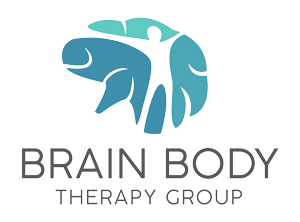
The 5 Best Resources for Easing Trauma
Trauma comes in all shapes and sizes and needs to be tended to. Here are five resources to ease the pain and find healing.
For this post, we are focusing more on what can be done with and in addition to therapy. There are many resources to do on your own, yet our recommendation is that you allow yourself to seek assistance when working through trauma.
A “trauma” could be different for each person. Psychological trauma is the result of a highly stressful event(s) or from the inability to cope. These unprocessed traumas show up throughout a person’s life activating them in current situations. They are not stored in one area of the brain; they infiltrate the entire brain. Activation could come in many forms such as anger, fear, or sadness to name a few.
We know that those emotions are felt throughout our body which brings us to the brain body connection. We must be aware of where we feel those points of activation to be able to work through them. That is the first resource, becoming aware, or being mindful. Mindfulness is am amazing concept of being present in the moment and a heightened awareness of what is happening in your body. Take some time to learn a mindfulness practice and do it daily to become more aware of yourself.
Sometimes with trauma, we feel worry about what is going to happen next. The second resource is to establish and maintain a routine. A daily routine will help you to be more at ease about what is going to happen in your day. We know life may take us off track at times, but you can then come back to your routine to regain that calm. Try scheduling your meals, sleep, exercise, and self-care activities for a week.
The third resource was mentioned above, that’s self-care. It’s a term we hear thrown around a lot now with all the stress in the world, but what does it mean? It is any activity we do intentionally to take care of our mental, emotional, and physical health. Self-care is not being selfish, it is necessary. Find something that refuels you, rather than takes energy from you and notice how you feel during and after that activity.
The fourth resource is coping skills. This is a great one to work on with your therapist! Learning new coping skills is a great activity to do so the next time you are feeling activated you can reach into your “toolbox” of coping skills and use it to regain your calm. The right coping skill is different for everyone. One person may find that music is something that helps while another may decide they need to go for a run. Research coping skills or make a note to discuss them with your therapist during your next session.
The fifth resource is one we really love and believe in here at Brain Body Therapy Group. It’s called Brainspotting. You will find a wealth of information all over the website about this therapy technique because of the power it has in healing a person’s traumas. It fits right in with mindfulness and that brain body connection. Brainspotting uses the awareness about activation in your body along with the ability for your brain to process the trauma(s) and allows you to find healing. Feel free to look around our website for more information or contact our office.
Get in Touch
6070 Newport Rd.
Portage, MI 49002
(269) 409-3000
Learn More
Interested in more information? Call or email us today.
